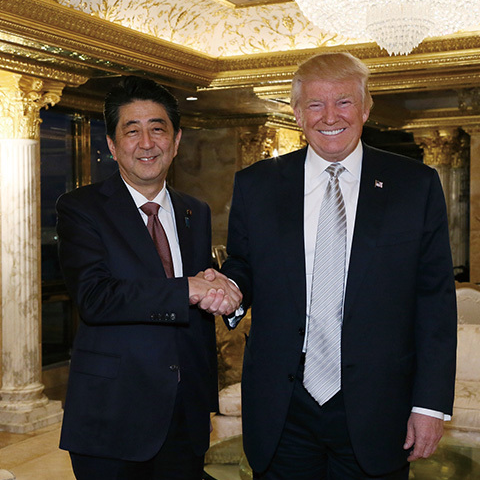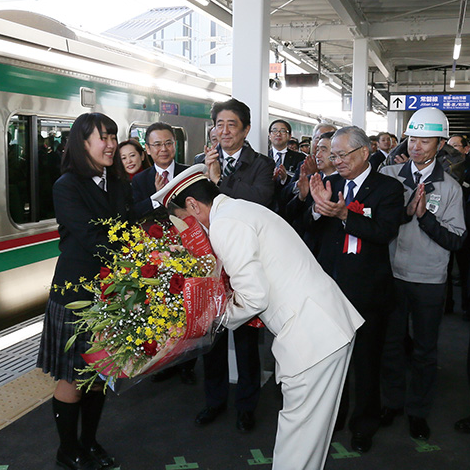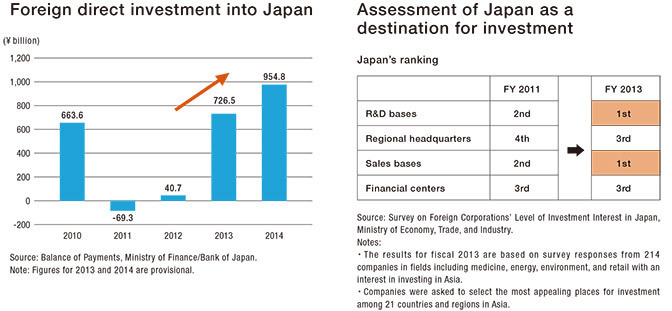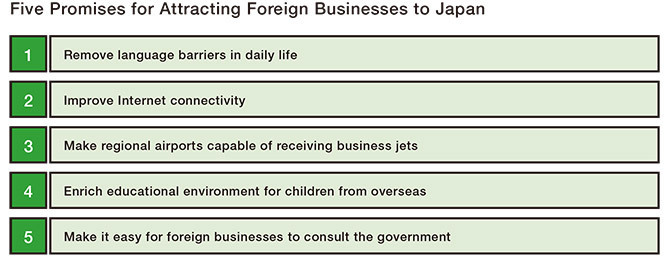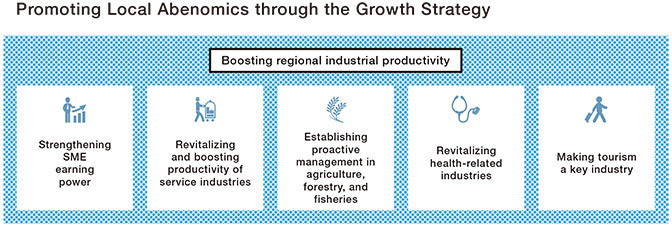With the progress of “Abenomics,” the economic policies being pursued by the administration of Prime Minister Shinzo Abe, the Japanese economy has started to realize a virtuous economic cycle and steady growth. The government has introduced measures aimed at revitalizing the economy one after another. It has reduced the effective corporate tax rate by 2.51 percentage points in fiscal 2015 (April 2015 to March 2016), and further reduction to the 20%–29% range, an internationally competitive level, is to be made over the next several years. And it is working to achieve fundamental improvements in the industrial structure, breaking through the long-established bedrock of regulations to make it easier for newcomers to enter existing fields of business.
The Japanese yen has moved in the direction of depreciation and the international competitiveness of Japan as a business location has been increasing dramatically. In one series of surveys of Asian countries’ investment appeal for foreign corporations, Japan’s economic difficulties had led to its losing its once dominant position and being overtaken by other Asian countries. But the latest survey, taken in fiscal 2013, showed a recovery, with Japan winning the top spot in the rankings for R&D bases and sales bases. Japan’s reputation as a destination for investment has also improved significantly in terms of its innovation environment and its stock of infrastructure. As a result of these developments, the pace of foreign direct investment into Japan has grown more than tenfold since the start of the current Abe administration in December 2012.
In March 2015 Prime Minister Abe took part in a meeting of the Council for Promotion of Foreign Direct Investment in Japan at which the body announced “Five Promises for Attracting Foreign Businesses to Japan” (as shown on the following page). The aim is to prepare and promptly implement steps to address causes of inconvenience and impediments commonly cited by foreign corporations and to create a “universal” business environment in Japan.
Recently the government has also been devoting efforts to the promotion of investment in regional cities and in small and medium-sized enterprises (SMEs).
Investment destinations in Japan are certainly not limited to Tokyo or other major cities. Many regional cities are equipped to host companies from abroad and are seeking to attract foreign direct investment. In the revised Japan Revitalization Strategy announced in June this year, the government included “Local Abenomics” as a major agenda item, focusing on the potential of Japan’s nonmetropolitan regions and making efforts to improve productivity in local industries.
It also bears noting that Japan has vigorous small to medium-sized enterprises in a variety of industries. Many SMEs are operating at a world-class level, with advanced technologies and unique products in their respective fields, such as medicine, aerospace, electronics, and fine processing of metals. Such firms offer promise as potential business partners and investment targets. This sort of variety in the options for foreign investors is one of Japan’s strengths. Recently, inter-industry exchanges have also begun between SMEs in Japan and Germany, based on an agreement between the two countries’ leaders.
In the following articles we introduce examples of regionally sited foreign direct investment and activities by ambitious SMEs and related bodies.
Source: Council for Promotion of Foreign Direct Investment in Japan, http://www.invest-japan.go.jp/en_index.html



























